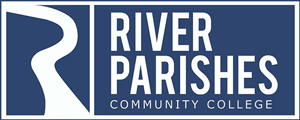Attention-Deficit/Hyperactivity Disorder (AD/HD) is a condition that can make it difficult for a person to sit still, control behavior, and pay attention. These difficulties usually begin before the person is seven but may not be noticed until the child is older. As many as 5 out of every 100 children in school may have AD/HD; males are three times more likely than females to have AD/HD. To obtain a diagnosis, evaluation by a trained professional is required.
There are three main signs of AD/HD:
- problems with keeping attention
- hyperactivity
- acting before thinking (impulsivity)
Types of AD/HD:
- combined type: inattentive, impulsive, and too active
Inattentive type: cannot seem to get focused or stay focused on a task or activity
- does not pay close attention to details
- cannot focus on play or school work for a set period of time
- does not follow through on instructions or finish school work or chores
- unable to organize tasks and activities
- distracted easily
- lose toys, schoolwork, and books
Hyperactive-impulsive type: very active and acts without thinking often. Hyperactivity and impulsivity tend to go together.
- unable to sit still for periods without fidgeting and squirming
- gets out of their chair during class when they are not supposed to
- has trouble playing quietly
- talkative with a tendency to ramble
- trouble waiting their turn
- interrupts others while they are talking
Combined type. Children with the combined type of AD/HD have symptoms of both types described above, such as paying attention, hyperactivity, and controlling impulses.
Tips for Parents
Learn about AD/HD. The more you know, the more you can help yourself and your child.
Talk with and Praise your Child. Talk about your child’s strengths and talents and encourage them by giving praise on areas of strength.
Meet with the school and teacher. Talk with the school about how, together, you can develop an individualized educational plan to address your child’s needs. Keep in contact with your child’s teacher to understand how the child is doing between school and home.
Talk with your doctor about whether medication is an appropriate avenue for your child. In addition, pay attention to your child’s mental health and your own. Counseling services can help the family unit with skills and coping mechanisms for everyone to experience success.
Implement strategies. Charting, reward programs for good behavior, ignoring behaviors, natural consequences, logical consequences, and time-out are all strategies that can lead to more positive behaviors and reduce problem behaviors.
Parents Groups whose children have AD/HD. Parents can share practical advice and emotional support.
- Lousiana Parent Training and Information Center – PTI: Contact Families Helping Families of Greater New Orleans 201 Evans Road, Building 1, Suite 100 Harahan, LA 70123 Toll-Free: (800) 766-7736 Phone: (504) 888-9111 E-mail: info@fhfofgno.org Website:https://fhfofgno.org/laptic
- pyramid Community Parent Resource – CPRC: Contact 3132 Napoleon Avenue New Orleans, LA 70125 Phone: (504) 218-8922 E-mail: info@pyramidparentcenter.org Website: http://www.pyramidparentcenter.org/home.php
Be clear, consistent, and positive. Set clear rules for your child, explaining what will happen if they don’t follow them. Tell your child what he or she should do, not just what he shouldn’t do.
Resources for Parents:
Attention Deficit Hyperactivity Disorder.
From the National Institute of Mental Health (NIMH), this extensive resource pages define AD/HD; describe its signs, symptoms, and risk factors; discuss treatment and therapies; and connect you with multimedia and federal resources.
https://www.nimh.nih.gov/health/topics/attention-deficit-hyperactivity-disorder-adhd/index.shtml
HealthyChildren.org on ADHD.
Scads of materials on ADHD in English and Spanish from this service of the American Academy of Pediatrics, including the article Understanding ADHD: Information for Parents.
https://www.healthychildren.org/English/health-issues/conditions/adhd/Pages/default.aspx
Information from the CDC.
https://www.cdc.gov/ncbddd/adhd/facts.html
If your child is having trouble at school, where do you start?
The resources listed on this page from CHADD will give parents a good background in the services and/or accommodations available to their child. Public schools should also provide parents with information about local procedures and policies governing ADHD and the support available through the school.
http://www.chadd.org/advocacy/education.aspx
Tips for Teachers
School can be difficult for a child with AD/HD; however, with proper support and advocacy, schools, teachers, and parents can help students with AD/HD. Students may be eligible to receive special education services or accommodations under the Individuals with Disabilities Education Act (IDEA).
Learn more about AD/HD. AD/HD can be present in different ways. For example, one student with AD/HD may have trouble ending one task and the next, while another may have trouble starting a task.
Post rules, schedules, and assignments. Clear rules, schedules, routines, and set timing for specific tasks will help a student with AD/HD. Provide step-by-step directions both verbally and in writing. Many students with AD/HD also benefit from doing the steps as separate tasks.
Meet with the school and parents. Talk about how, together, you can develop an individualized educational plan to address the child’s needs. Keep in contact with the child’s parent(s) to understand how the child is doing between school and home.
Help the student channel his or her physical activity. For example, providing regularly scheduled breaks where it is appropriate for the student to move around. You could let the student stand while completing their work.
Teachers Guide to ADHD in the Classroom.
This guide focuses on what educators need to know about teaching kids with ADHD: how it affects children in the classroom — girls and boys — and how teachers can help kids with the disorder succeed in school.
https://childmind.org/guide/a-teachers-guide-to-adhd-in-the-classroom/
Teaching Children with ADHD: Instructional Strategies and Practices.
From the U.S. Department of Education.
https://www2.ed.gov/rschstat/research/pubs/adhd/adhd-teaching_pg2.html
Teaching Students with ADHD: A Help Guide.
https://www.helpguide.org/articles/add-adhd/teaching-students-with-adhd-attention-deficit-disorder.htm
Additional Resources
CHADD | Children and Adults with Attention-Deficit/Hyperactivity Disorder
Find loads of info on ADD and AD/HD. Find a local chapter of CHADD.
301.306.7070 | Info available in English and Spanish.
http://www.chadd.org
National Resource Center on AD/HD
A service of CHADD.
1.800.233.4050 | Info available in English and Spanish.
http://www.chadd.org/NRC.aspx
Attention Deficit Disorder Association
1.800.939.1019 | info@add.org
https://add.org/




